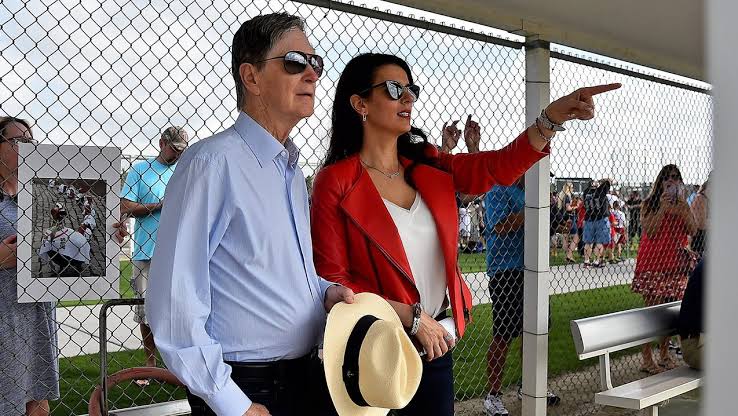Boston Globe CEO Linda Henry Exits NWSL Ownership Group
Media executive Linda Pizzuti Henry is withdrawing her investment from Boston Unity Soccer Partners, the ownership group behind Boston’s 2026 NWSL expansion club, she announced in an Instagram post on Friday.
Henry, who serves as the CEO of Boston Globe Media, co-owns the company with her husband, John Henry, the principal owner of Fenway Sports Group—which controls the Boston Red Sox, Liverpool FC, and the Pittsburgh Penguins.
“In December, I officially notified the Boston NWSL team that I would be exiting the investor group,” Henry stated. “We are working together and expect to complete the process soon, and I will then just be a Boston fan, not part of the BosNation team in any way.”
She added that she had “happily joined as a limited, passive investor when the group was forming.”
“I remain very excited about the growth and future of women’s sports in Boston and beyond,” Henry concluded.
Despite her departure, Boston’s NWSL team retains several high-profile minority shareholders, including Olympic gold medal gymnast Aly Raisman, actress Elizabeth Banks, and Celtics president of basketball operations Brad Stevens and his wife, Tracy. Both Raisman and Banks are Boston natives.
Boston Unity Sports Group acknowledged Henry’s role in the project, stating: “We want to thank Linda for her early investment into bringing professional women’s soccer back to Boston. Our ownership group continues to grow, and we’re excited about what’s to come as we kick off in 2026.”
Controversy Surrounding Boston’s NWSL Team
Henry’s exit comes amid growing scrutiny surrounding Boston Unity Soccer Partners, which secured the NWSL expansion franchise in 2023. Led by managing partners Jennifer Epstein, Stephanie Connaughton, Ami Danoff, and Anna Palmer, the group has faced backlash over several key issues, including the rollout of the team’s name and its stadium plans.
The club is reassessing its previously announced name, Bos Nation FC, following a widely criticized marketing campaign titled “Too Many Balls.” Intended to highlight Boston’s male-dominated sports landscape, the campaign was condemned as shortsighted and transphobic, prompting the team to apologize.
The ownership group has also faced opposition regarding its agreement with the City of Boston to renovate and lease White Stadium—a publicly owned venue set to become the team’s home ground.
The project, partially taxpayer-funded, is currently the subject of a lawsuit challenging the renovation costs, which have surged past initial estimates. A judge declined to halt construction in March 2024, setting the case for trial the following year.
Boston city officials have also acknowledged cost overruns, with the publicly funded portion rising beyond $100 million. In January, city operations chief Dion Irish testified before the Boston City Council, revealing the ballooning costs, which led to a deadlocked 6-6 vote on whether to pause the project.
In response, Boston Unity Sports Group defended its involvement, stating:
“White Stadium construction is proceeding at an accelerated timeline in preparation for our inaugural season in 2026. As indicated by the judge’s ruling last March, there is no legal basis to challenge this public-private-community partnership to revitalize the stadium. We remain confident that there is no legal foundation for this case and are proud to be part of a project that honors the legacy of White Stadium, ensuring it will continue to be a vital part of our community for future generations.”
White Stadium Debate Sparks Political Tensions
The White Stadium project has become a hot-button issue in Boston’s political landscape, drawing criticism from philanthropist Josh Kraft, who is running against incumbent Mayor Michelle Wu in this year’s mayoral election.
Wu has been a strong proponent of the stadium plan, arguing that the city will retain ownership, collect rent from the team, and increase public usage hours by 400% once renovations are completed. However, the cost overruns—jumping from an initial $50 million estimate to $91 million—have fueled opposition.
Kraft, son of New England Patriots owner Robert Kraft, has repeatedly criticized Wu’s support for the project. He has attended community meetings and rallies opposing the renovation and has called for a halt to demolition until the legal challenges are resolved.
“Many community members expressed significant concerns about the $100 million in taxpayer money pledged to the project that will primarily benefit a private interest,” Kraft stated, citing additional worries over environmental impact and neighborhood congestion.
Kraft, who previously led his family’s philanthropic efforts, stepped down as president of the New England Patriots Foundation to focus on his mayoral bid.
Meanwhile, the Kraft family continues its longstanding efforts to build a soccer-specific stadium for the MLS’s New England Revolution, which currently plays at Gillette Stadium in Foxborough. Their latest proposal, in the suburb of Everett, recently cleared a key legislative hurdle, moving the project closer to reality.
